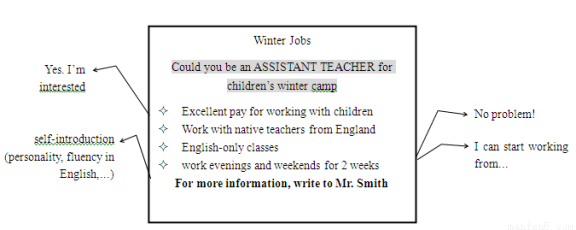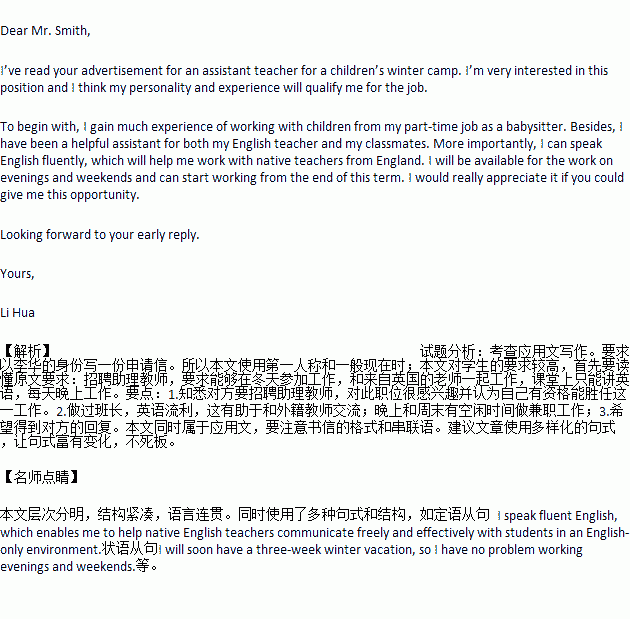题目内容
假定你是李华,计划寒假找份兼职工作。下面的招聘广引起了你的注意,请根据要点(箭头所指内容)写一封申请信。

注意:
1. 词数100左右;
2. 可适当增加细节使行文连贯;
3. 开头已经给出,不计入总词数。
Dear Mr. Smith,
I’ve read your advertisement for an assistant teacher for a children’s winter camp.
__________________________________________________________________________________
__________________________________________________________________________________
__________________________________________________________________________________
__________________________________________________________________________________
__________________________________________________________________________________
__________________________________________________________________________________
Yours,
Li Hua
练习册系列答案
相关题目

